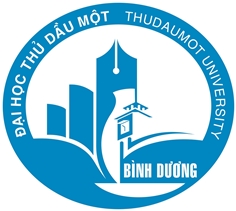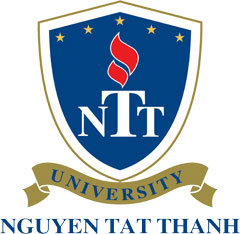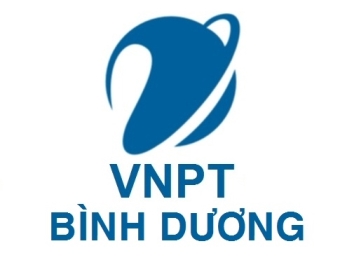Keynote speech 1: Developing Smart City based on City Characteristics and Urban Issues

Abstract:
During the last 20 years, Korea has been promoting over 53 smart cities and among these, the best practice cases of four representative cities (Songdo, Pangyo, Anyang and Namyangju) will be presented in this key note speech. Two of them are the cases where smart city development took place gradually on existing cities, while the other two are the cases where smart city development took place in one-shot along with new town development. I believe these two different development styles can be useful references when deciding how to approach smart city development based on city characteristics and urban issues. The speaker sincerely hope that Korea’s experiences and lessons learned of smart city development get effectively shared and applied as promising alternative to maximize the economic feasibility and social benefits with the emerging cities of the Vietnam like Binh Duong.
Short bio:
Dr. Sang Keon Lee is a Senior Research Fellow and the former Director of the National Infrastructure Research Division at Korea Research Institute for Human Settlements (KRIHS). He received his B.S. in Architectural Engineering and M.S. in Urban Planning from Yonsei University, Seoul, Korea. His Ph.D. was in Civil Engineering from Virginia Tech, Blacksburg, U.S. where he studied ICT application to transportation sector. He is acting as the Korean head of delegation and convener of u-ITS ad hoc Working Group at ISO/TC204, as well as the Executive Director of Korean Society of Transportation Engineers. During the last 27 years, Dr. Lee has explored widely in the fields of Intelligent Transportation Systems and ICT; and his current research interests are ubiquitous traffic information standardization and globalization of smart city technology for developing countries, including Integrated Operation and Control Center (IOCC).
The current projects of Dr. Lee are focused on international consulting in the fields of ICT and smart city, including: Project director, “RFP Development for IOCC Pilot Project in Goiania, Brazil” for the Inter-American Development Bank (IDB) (2013-2014); Project director, “Case Studies for Assessing IT Service Industry Development Potential in Pune and Chittagong” for the World Bank (2013-2014); Project director, “Policy Recommendations for the Public Transportation System in Riyadh, Saudi Arabia” and “Implementation Plan for Saudi Arabia’s National Transport Database” for Korea Development Institute (KDI); Project director, “Design for the Integrated Operation and Control Center for City Management in Montego Bay, Jamaica” for Korea Eximbank (2013-2014).
Keynote speech 2: Social Networking Ontology Engineering Walkthrough: Practical Approach for Non-Expert User Learning

Abstract:
The utilization of ontologies in knowledge management has become very well accepted in many approaches for instance database, semantics, agent, natural language processing, etc. Artificial intelligent researchers have originally applied the word “ontology” from Philosophy fields which means “being existence”, then the word spread in many scientific domain and ontologies are now used in several developments. The purpose of this talk is to present the simple methodologies and methods used to build/adapt/integrate ontologies from the system requirement or by reusing and reengineering other ontologies; also a process of merging approach will be addressed. The normal ontology engineering will not be suitable for non-expert user; and there are some tools for helping the user to accomplish the ontology engineering task, however, it is not that simple. This talk mentioned the observation and figure out the practical methodology for non-expert user to learn and create simple ontology with little background of them. This talk mentioned the ontology and ontology engineering revisits. Also main content of the talk mentioned the scenario walkthrough about reality of how non-expert user creates the simple ontology by using suggested and existing methodologies. The last point is recommendation and suggestion from the research experimental which explain the proper ontology developing methodology for non-expert user.
Short bio:
Waralak Vongdoiwang Siricharoen is lecturer and senior researcher of Computer Science Department, School of Science and Technology, University of the Thai Chamber of Commerce (UTCC), Bangkok, Thailand. She received her master degree in Business Administration with Computer Information Systems Certificate in 1999 from University of Southern New Hampshire, NH, USA. And she received her Doctoral Degree of Technical Science in 2005 from Asian Institute of Technology (AIT), Thailand. Her works focus on ontologies engineering for non-experts, human computer interaction and infographic evaluation. Her works have been reported in peer-reviewed papers published in international journals, conference proceedings, and books. Her research area specialists are ontologies, database technology, software engineering, object oriented, human computer interaction, infographics, etc. She received the researches and development grants worth more than 1,000,000 baht from UTCC. Also now she is supervising bachelor, master, and PhD students. She has several published books, journals and conference proceedings papers. Also now she is acting as Editor-in-Chief of the International Journal of E-Entrepreneurship and Innovation (IJEEI); the editor of academic journals; reviewer of several conferences; general chair of international conferences; invited, keynote speaker, and master of ceremony in the international conferences and events.








































